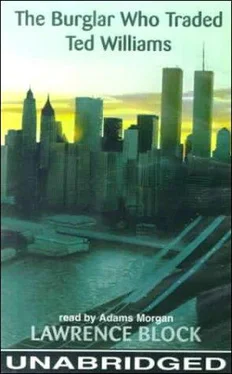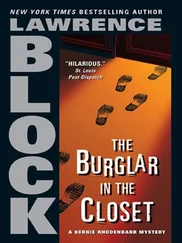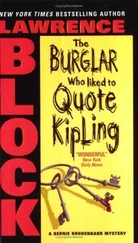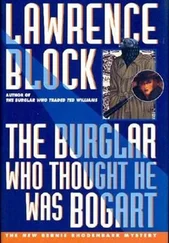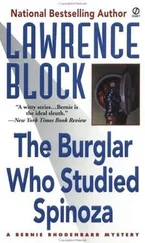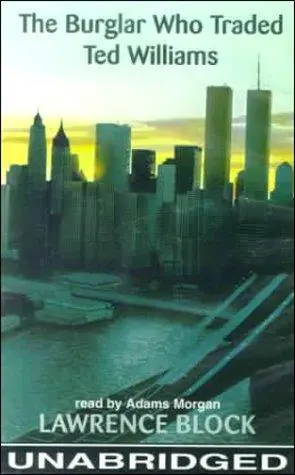
THE BURGLAR WHO TRADED TED WILLIAMS
LAWRENCE BLOCK
Bernie Rhodenbarr – 10
This one’s for all the people who’ve
come up to me over the past ten years
to ask me if I was ever going to write
another book about Bernie. If half of
you buy it, I’ll be rich.
It’s also for Sue Grafton, a very
classy lady indeed. And for Steve King,
who wanted a book about cats.
And it’s for Lynne. You want to know
a secret? They’re all for Lynne….
“Not a bad-looking Burglar, ” he said. “I don’t suppose you’d happen to have a decent Alibi? ”
I didn’t hear the italics. They’re present not to indicate vocal stress but to show that they were titles, or at least truncated titles. “A” Is for Alibi and “B” Is for Burglar, those were the books in question, and he had just laid a copy of the latter volume on the counter in front of me, which might have given me a clue. But it didn’t, and I didn’t hear the italics. What I heard was a stocky fellow with a gruff voice calling me a burglar, albeit a not-bad-looking one, and asking if I had an alibi, and I have to tell you it gave me a turn.
Because I am a burglar, although that’s something I’ve tried to keep from getting around. I’m also a bookseller, in which capacity I was sitting on a stool behind the counter at Barnegat Books. In fact, I’d just about managed to forsake burglary entirely in favor of bookselling, having gone over a year without letting myself into a stranger’s abode. Lately, though, I’d been feeling on the verge of what those earnest folk in twelve-step programs would very likely call a slip.
Less forgiving souls would call it a premeditated felony.
Whatever you called it, I was a little sensitive on the subject. I went all cold inside, and then my eyes dropped to the book, and light dawned. “Oh,” I said. “Sue Grafton.”
“Right. Have you got ‘A’ Is for Alibi? ”
“I don’t believe so. I had a copy of the book-club edition, but—”
“I’m not interested in book-club editions.”
“No. Well, even if you were, I couldn’t sell it to you. I don’t have it anymore. Someone bought it.”
“Why would anyone buy the book-club edition?”
“Well, the print’s a little larger than the paperback.”
“So?”
“Makes it easier to read.”
The expression on his face told me what he thought of people who bought books for no better reason than to read them. He was in his late thirties, clean-shaven, with a suit and a tie and a full head of glossy brown hair. His mouth was fulllipped and pouty, and he’d have to lose a few pounds if he wanted a jawline.
“How much?” he demanded.
I checked the penciled price on the flyleaf. “Eighty dollars. With tax it comes to”—a glance at the tax table—“eighty-six sixty.”
“I’ll give you a check.”
“All right.”
“Or I could give you eighty dollars in cash,” he said, “and we can just forget about the tax.”
Sometimes this works. Truth to tell, there aren’t many books on my shelves I can’t be persuaded to discount by ten percent or so, even without the incentive of blindsiding the governor. But I told him a check would be fine, and to make it payable to Barnegat Books. When he was done scribbling I looked at the check and read the signature. Borden Stoppelgard, he had written, and that very name was imprinted at the top of his check, along with an address on East Thirty-seventh Street.
I looked at the signature and I looked at him. “I’ll have to see some identification,” I said.
Don’t ask me why. I didn’t really think there could be anything wrong with him or his check. The lads who write hot checks don’t offer you cash in an attempt to avoid paying sales tax. I guess I just didn’t like him, and I was trying to be a generic pain in the neck.
He gave me a look that suggested as much, then hauled out his wallet and came up with a credit card and driver’s license. I verified his signature, jotted down his Amex number on the back of the check, then looked at the picture on the license. It was him, all right, if a touch less jowly. I read the name, Stoppelgard, Borden, and finally the penny dropped.
“Borden Stoppelgard,” I said.
“That’s right.”
“Of Hearthstone Realty.”
His expression turned guarded. It hadn’t been all that open in the first place, but now it was a fortress, and he was busy digging a moat around it.
“You’re my landlord,” I said. “You just bought this building.”
“I own a lot of buildings,” he said. “I buy them, I sell them.”
“You bought this one, and now you’re looking to raise my rent.”
“You can hardly deny that it’s ridiculously low.”
“It’s eight seventy-five a month,” I said. “The lease is up the first of the year, and you’re offering me a new lease at ten thousand five hundred dollars a month.”
“I imagine that strikes you as high.”
“High?” I said. “What makes you say that?”
“Because I can assure you—”
“Try stratospheric,” I suggested.
“—that it’s very much in line with the market.”
“All I know,” I said, “is that it’s completely out of the question. You want me to pay more each month than I’ve been paying for an entire year. That’s an increase of what, twelve hundred percent? Ten-five a month is more than I gross, for God’s sake.”
He shrugged. “I guess you’ll have to move.”
“I don’t want to move,” I said. “I love this store. I bought it from Mr. Litzauer when he decided to retire to Florida, and I want to go on owning it until I retire, and—”
“Perhaps you should start thinking early retirement.”
I looked at him.
“Face it,” he said. “I’m not raising the rent because I’m out to get you. Believe me, it’s nothing personal. Your rent’s been a steal since before you even bought the store. Some idiot gave your buddy Litzauer a thirty-year lease, and the escalators in it didn’t begin to keep pace with the realities of commercial real estate in an inflationary economy. Once I get you out of here I’ll rip out all that shelving and rent the place to a Thai restaurant or a Korean greengrocer, and do you know what kind of rent I’ll get for a nice big space like this? Forget ten-five. Try fifteen a month, fifteen thousand dollars, and the tenant’ll be glad to pay it.”
“But what am I supposed to do?”
“Not my problem. But I’m sure there are places in Brooklyn or Queens where you can get this kind of square footage at an affordable rent.”
“Who goes there to buy books?”
“Who comes here to buy books? You’re an anachronism, my friend. You’re a throwback to the days when Fourth Avenue was known throughout the world as Booksellers’ Row. Dozens of stores, and what happened to them? The business changed. Paperback books undermined the secondhand market. The general used-book store became a thing of the past, with the owners retiring or dying off. The few who are left are on the tail end of long-term leases like yours, or they’re run by canny old codgers who bought their buildings outright years ago. You’re in a dying business, Mr. Rhodenbarr. Here we are on a beautiful September afternoon and I’m the only customer in your shop. What does that say about your business?”
Читать дальше
